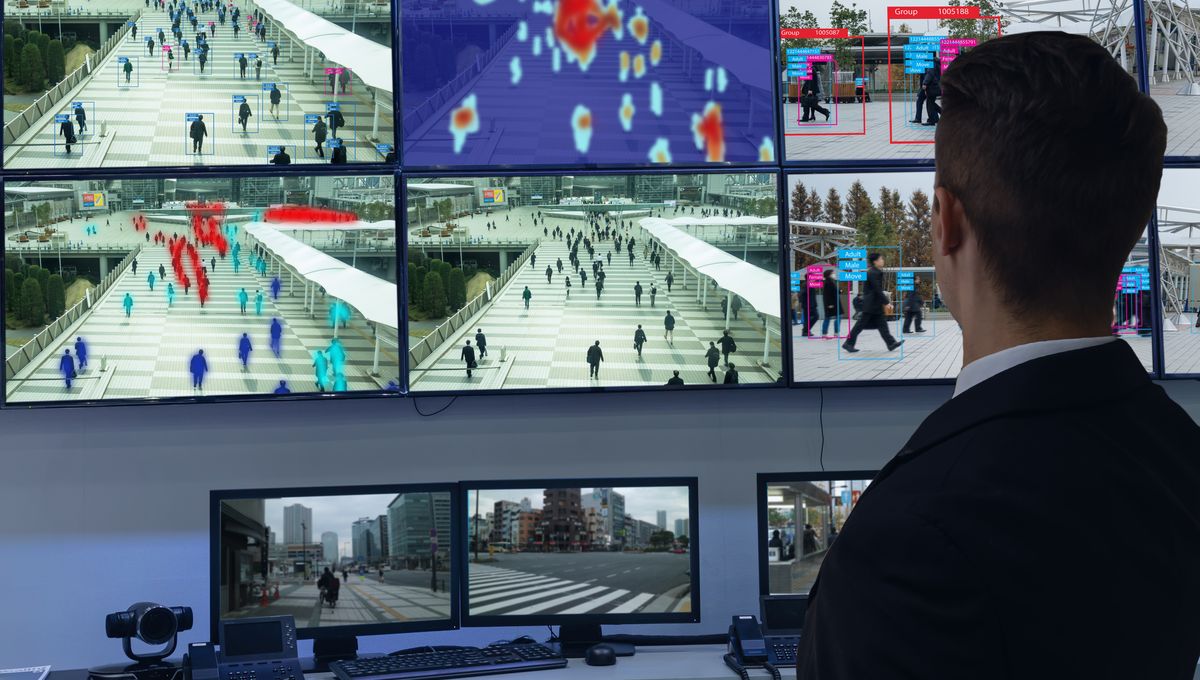
There are people living among us who have a rare and perhaps valuable superpower – they never forget a face. We’re not just talking about being good at recognizing faces, we’re talking about an exceptional ability to recall details, even after just a brief glimpse at someone. Yet while this unusual trait has been known about for some time, new research has finally tested it – and the results are incredible.
Super-recognizers (SRs) were first identified and described as individuals with exceptional facial recognition abilities just over a decade ago. In fact, some say they are as good at recognizing faces as people with prosopagnosia, aka face-blindness, are bad at it.
As you can imagine, this acute ability has received interest from people who see benefits for policing or law enforcement. In fact, there are already teams of SRs working with investigators in some high profile cases, such as the recent New Year’s Eve riots in parts of Germany. The UK’s Metropolitan Police Service has already been deploying SRs within CCTV control rooms to help spot specific targets or prolific offenders. These individuals are described as being particularly useful at major sporting events, where they can scan for known troublemakers. Similarly, their observational aptitude can be employed at music festivals, among others. It seems there are many ways such unique individuals could be used to fight crime.
Despite the enthusiasm for their abilities, there has been remarkably little research to back it up. What limited work has been done on this subject has tended to rely on simulations to test SRs in controlled circumstances. These studies have then been used to promote their potential value for law enforcement activities.
None “of the existing studies have to our knowledge examined SRs’ performance on processing authentic police, let alone forensic material,” the authors of a new study have argued. “Without direct empirical evidence, the assumption that operations can be improved via SRs remains an indirectly, anecdotally supported hope.”
Maren Mayer of the Leibniz-Institut für Wissensmedien (Knowledge Media Research Center), Germany, and Meike Ramon of the Applied Face Cognition Lab, University of Lausanne, Switzerland, have addressed this gap.
One of the researchers was originally contacted by the Cantonal Criminal Police of Fribourg (Switzerland) in 2016, who requested help from SRs to investigate two ongoing cases where robberies had been caught on closed-circuit television (CCTV).
“This practical request represented a unique opportunity to empirically determine the predictive value of SRs identified with scientifically validated and standardized lab tests for deployment in real-life forensic settings”, the authors noted.
Yet while this was an exciting chance to see how SRs could perform with real cases, this reality brought with it some challenges. Firstly, at the time, the investigation was ongoing, so the perpetrators were still unknown. Secondly, SRs are not unified in their abilities, which means they may have identified different people in a line up.
To overcome this, the Cantonal Criminal Police provided the researchers with CCTV sequences and associated police lineups from concluded cases, to help them validate the SRs’ skills. Then in 2017 the perpetrator from the ongoing cases was arrested and confessed to the robberies. The police had their person, and the researchers had their authentic test materials.
Mayer and Ramon collected data from 118 participants, 66 of which were already known to be SRs. The other participants were selected to allow for comparison with individuals with average face processing abilities – though 7 of these people were subsequently identified as SRs, so were transferred to the first group. The participants’ average age was around 36, and 50 percent of them were female. In addition, around 25 percent of the participants were police officers, while the rest were involved in occupations that were not related to the law.
The researchers confirmed that SRs could be successfully identified through a single test that has been used in previous studies.
“Our study shows that SRs identified via a recently proposed diagnostic framework excel at identifying perpetrators in authentic forensic material.”
They also found that SRs can be more accurate at identifying suspects on authentic CCTV footage and show enhanced performance if they have already shown high performance on other forensic material. They also noticed that there were disparities between the SRs’ abilities, with some being far better than others.
“Put simply,” the study explained, “there are notable differences even among the top of the crop; the more criteria used and met, the better the to-be-expected performance outcome.”
These results make a strong case for the use of standardized tests by researchers and practitioners for potential SRs to work with law enforcement activities. They also argue that, in addition to taking lab-based tests, suspected SRs should also be tested on authentic material related to the task they will be asked to undertake.
“Thus, deploying SRs in policing and law enforcement tasks requiring face identity processing can be highly beneficial, as evidenced by increased accuracy for forensic perpetrator identification in CCTV footage.”
The study is published in the journal PNAS.
Source Link: Could You Be A Super-Recognizer And Help Fight Crime?